Accordingly, the Politburo stipulates 27 acts of taking advantage of, abusing position, power, power abuse, corruption, and negativity in litigation and execution activities:
1. Lead, direct, advise, and issue documents contrary to the Party's policies and regulations and the State's laws in litigation, execution of judgments, and other related activities.
2. Failure to implement or improper or incomplete implementation of the Party's policies and regulations, the State's laws, working regulations, rules, professional procedures, ethical standards, codes of conduct, duties and public services in litigation, execution of judgments and other related activities.
3. Lack of responsibility, lax leadership and management leading to violations, abuse of position, power, abuse of power, corruption, and negativity in litigation, execution of judgments, and other related activities.
4. Covering up, condoning, assisting, and improperly handling violations, taking advantage of, abusing positions, powers, power, corruption, and negativity in litigation, execution of judgments, and other related activities.

5. Interfering, obstructing, or influencing contrary to the Party's regulations and the State's laws on litigation, execution of judgments, and other related activities, on inspection, supervision, and auditing activities of Party committees, Party organizations, advisory and support agencies of the Party, and functional agencies, on supervisory activities of elected agencies and representatives, the Fatherland Front, socio-political organizations, and the People regarding litigation, execution of judgments, and other related activities.
6. Directing or forcing subordinates to conceal, not report, report falsely, not implement or not properly implement regulations and professional procedures, leading to incorrect results in receiving and handling information about crimes, initiating prosecution, investigating, prosecuting, trying, executing sentences and other related activities.
7. Intentionally not receiving, handling or receiving, handling not in accordance with the law, information about crimes, filing lawsuits to resolve administrative cases, civil cases, requests to resolve civil matters, bankruptcy, and execution of judgments.
8. Concealing, distorting, omitting or leaking information about crimes or falsifying records, documents, or illegally destroying evidence or exhibits.
9. Issuing decisions to prosecute or not to prosecute a case, decisions to prosecute a defendant or not to issue decisions to prosecute a defendant, decisions to approve or cancel decisions to prosecute a defendant illegally; not to prosecute a guilty person or to prosecute an innocent person or to issue illegal judgments or decisions.
10. Decision to apply, change, cancel preventive measures, coercive measures, judicial measures, change crime, punishment, exempt or reduce punishment, exempt or reduce criminal or civil liability, temporarily suspend or stop the settlement of a case, incident, transfer a case, illegally merge or separate cases.
11. Torturing, forcing, eliciting or directing or organizing the collusion of the accused; forcing or suggesting the litigant or other participants in the proceedings to provide documents, statements or presentations that are not objective or truthful.
12. Delaying or prolonging the time for appraisal or valuation of assets in violation of the provisions of law; intentionally avoiding or prolonging the time for providing documents as requested for appraisal or valuation or providing false documents; concluding appraisal or valuation of assets in violation of the law or refusing to conclude appraisal or valuation of assets in violation of the law.
13. Taking advantage of the right to request an appraisal, request property valuation, the right to request the provision of records and documents, or the right to return the case file for further investigation, the right to annul the judgment for re-investigation, the right to appeal, review, retrial, or the right to request an explanation of the judgment to prolong the process of resolving the case, incident, or executing the judgment for personal gain.
14. Proposing and deciding to postpone or temporarily suspend the execution of a prison sentence, exempt or reduce the execution of a prison sentence, conditionally release prisoners early, shorten the probation period of a person serving a suspended sentence, consider and propose illegal amnesty.
15. Intentionally enforcing a judgment contrary to the content of a judgment or decision that has come into legal effect or failing to issue a decision to enforce a judgment, delaying or prolonging the time to resolve an illegal judgment enforcement; deciding to apply security measures, temporary emergency measures, compulsory enforcement of judgments, colluding with valuation units, property auctioning units to restrict buyers, suppress prices, or lower the prices of assets subject to illegal judgment enforcement.
16. Intentionally violating regulations on sealing, unsealing, seizing assets, freezing accounts, seizing, preserving, and handling evidence, temporarily detained assets, and assets subject to execution of judgments.
17. Illegally obstructing the activities of defenders, protectors of the legitimate rights and interests of victims and litigants; self-defense, asking for defense, protection of legitimate rights and interests or exercising the right to complain, denounce and other rights of victims, persons subject to enforcement of judgments, litigants, accused persons, persons serving sentences, persons subject to enforcement of judgments as prescribed by law.
18. Consulting, contacting, approaching, or handling matters that are not in accordance with regulations on visiting, meeting, and communicating with accused persons and prisoners; causing trouble or harassment to accused persons, persons serving sentences, persons subject to sentence execution, victims, persons subject to sentence execution, litigants, or their relatives for personal gain or other personal motives.
19. Taking advantage of work related to state secrets or work secrets for personal gain or other personal motives; directing or providing, disclosing information, records, and documents related to a case or incident contrary to Party regulations and State laws.
20. Taking advantage of, abusing one's position, power, or power to appropriate property; taking advantage of influence over people in positions of power or authority or falsifying work to gain benefits in litigation, execution of judgments, and other related activities.
21. Taking advantage of, abusing one's position, power, or authority to impose or legalize one's illegal actions and decisions or to resolve one's personal matters in litigation, execution of judgments, and other related activities.
22. Receiving gifts (material or immaterial benefits) in any form to violate Party regulations and State laws; giving gifts (directly or indirectly in any form) to influence or influence competent persons in litigation, execution of judgments and other related activities, distorting the results of handling information about crimes, prosecution, investigation, prosecution, trial, execution of judgments and other related activities.
23. Intentionally allowing relatives and other relatives to take advantage of one's work position, title, or authority for personal gain or to participate in defending or providing legal advice in a case or matter that one directs to resolve or directly resolves.
24. Intentionally failing to resolve, failing to implement or resolving, implementing incorrectly or obstructing the resolution of recommendations, reflections, complaints, denunciations, requests in litigation activities, judgment enforcement and other related activities.
25. Disclosing information, threatening, retaliating against, or suppressing people who make recommendations, reflect, denounce, make accusations, report, or provide information about corrupt and negative acts in litigation, execution of judgments, and other related activities within the scope of assigned management and responsibility.
26. Threatening, retaliating, suppressing, or bribing people who report crimes, people who report corruption, or negative acts related to themselves or their family members during the process of resolving cases, incidents, or executing judgments.
27. Taking advantage of, abusing position, power, and authority in applying professional measures to infringe upon the legitimate rights and interests of organizations and individuals; illegally using information and documents collected from professional measures.
In addition, the Politburo also regulates acts of taking advantage of, abusing positions and powers, abusing power, corruption, and other negative acts in litigation, execution of judgments, and other related activities according to Party regulations and State laws.
In addition, the Politburo also stipulates handling of violations, taking advantage of, abusing positions, powers, abuse of power, corruption, and negativity.
In particular, in addition to being strictly handled according to existing regulations, the Politburo clearly stipulates that in cases where disciplinary action has been taken, but deemed necessary, competent authorities must resolutely transfer violators from their current positions, replace them, dismiss them, remove them from office, resign them, and not assign them to work related to litigation activities, execution of judgments, and other related activities.
At the same time, revoke and not reappoint judicial and judicial support positions and positions in agencies and organizations with other activities related to litigation and execution of judgments.
In case of violation to the extent that criminal liability must be prosecuted, the case must be transferred to the competent authority for handling according to the provisions of law. It is strictly forbidden to retain it for internal handling.
The Politburo also clearly stipulates the handling of responsibilities when violations, taking advantage of, abusing positions, powers, power abuse, corruption, and negativity occur.
Source





![[Photo] Panorama of the parade celebrating the 50th anniversary of the Liberation of the South and National Reunification](https://vphoto.vietnam.vn/thumb/1200x675/vietnam/resource/IMAGE/2025/4/30/affbd72e439d4362962babbf222ffb8b)

![[Photo] Mass parade to celebrate 50 years of national reunification](https://vphoto.vietnam.vn/thumb/1200x675/vietnam/resource/IMAGE/2025/4/30/825e459ee2f54d85b3a134cdcda46e0d)
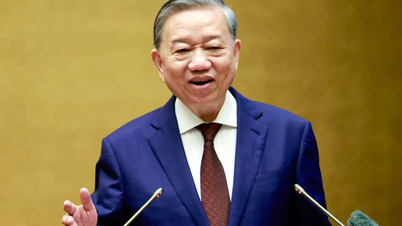



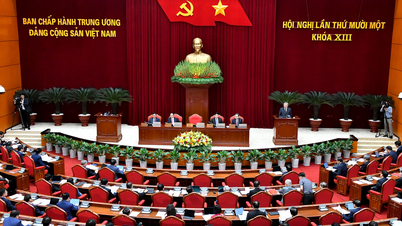



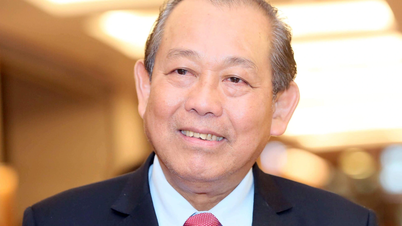


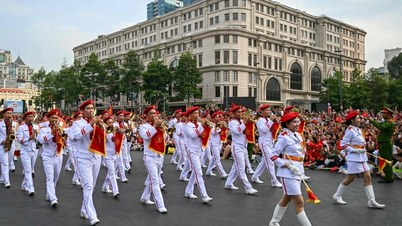


















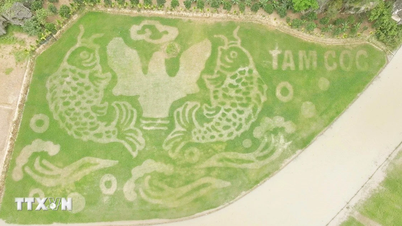










































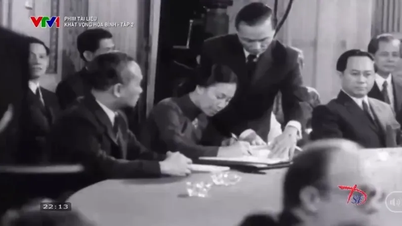


















Comment (0)